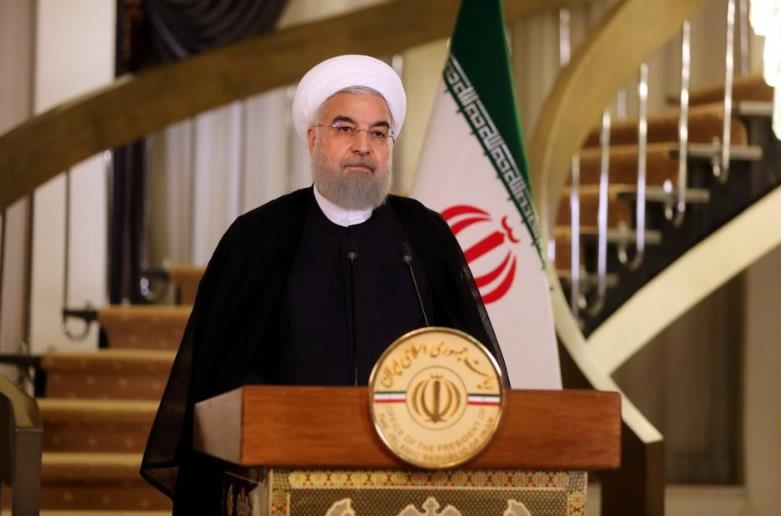
Politics
11:09, 08-Nov-2017
EU urges US Congress not to torpedo Iran deal
CGTN

European Union (EU) foreign policy chief Federica Mogherini warned Tuesday that the Iran nuclear deal can never be renegotiated, as she urged US lawmakers not to try to reopen the agreement.
Her visit coincided with that of the head of the UN nuclear watchdog, IAEA director general Yukiya Amano, who defended his agency's ability to monitor Iran's compliance with the accord.
President Donald Trump has told Congress that he can no longer "certify" that the 2015 accord is in the US national interest, leaving its fate in the hands of skeptical senators.
Mogherini, therefore, came to Washington – while Trump was touring Asia – to sit down with legislators on Capitol Hill.

File photo of EU foreign policy chief Federica Mogherini /Reuters Photo
File photo of EU foreign policy chief Federica Mogherini /Reuters Photo
While she insisted Brussels does not want to interfere in Washington politics, she sent a clear message that Europe opposes any new US law that would breach the terms of the deal.
Senator Bob Corker, the head of the powerful Senate Foreign Relations Committee, and his Republican colleague and rising star Senator Tom Cotton, are working on such a bill.
While it has not been finalized – and its supporters insist it is designed to strengthen enforcement of the Iran deal rather than to destroy it – opponents fear it will do just that.
Speaking to reporters after talks with US lawmakers, Mogherini said she had sought and received reassurances that the bill would keep the United States "compliant with the deal."
"We are exchanging views with legislators on the need to make sure, before a bill is presented, that its contents do not represent a violation," she said.

File photo of Iranian President Hassan Rouhani /Reuters Photo
File photo of Iranian President Hassan Rouhani /Reuters Photo
In a fact sheet to explain the proposed law, the senators propose that US nuclear-related sanctions on Iran would snap back if Tehran violates "enhanced and existing restrictions."
No 'sunset' clause
These "enhancements" to restrictions would end so called "sunset" clauses that would see some curbs on Tehran's program phased out between eight and 15 years from now.
But supporters of the deal argue changing these provisions of the Joint Comprehensive Plan of Action (JCPOA) signed by Iran and six world powers would itself collapse the deal.
Mogherini pushed back strongly on the idea that the 2015 deal, under which Iran submitted to nuclear controls in return for sanctions relief, would "sunset" at all.

Participants in the talks on the Iran nuclear deal pose for a group photo at the UN building in Vienna, on July 14, 2015. /AP Photo
Participants in the talks on the Iran nuclear deal pose for a group photo at the UN building in Vienna, on July 14, 2015. /AP Photo
"The JCPOA has no sunset clause," she said. "There are different arrangements within the JCPOA that have different durations... some will last forever."
"Article Three of the agreement says that Iran will never develop a nuclear weapon, for instance."
And, she added, under the "foreseen ratification" by Iran of the International Atomic Energy Agency's "additional protocol ... certain commitments will become permanent."
"Renegotiating is not an option," she said, insisting Britain, France, Germany, China and Russia will not review 12 years of complex international diplomacy because of US concerns.
11160km
Source(s): AFP
,Reuters

SITEMAP
Copyright © 2018 CGTN. Beijing ICP prepared NO.16065310-3
Copyright © 2018 CGTN. Beijing ICP prepared NO.16065310-3